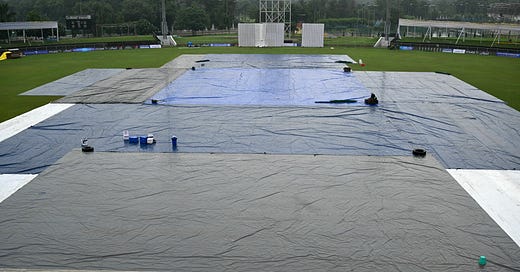Well, that backfired.
I was hoping to delay this long enough to have a look at the first hour of play of the first of New Zealand’s six tests on the subcontinent in the space of a couple of months.
Even acknowledging that for many, playing Afghanistan requires a holding of the nose to block out the stench of hypocrisy, I can’t help but be intri…
Keep reading with a 7-day free trial
Subscribe to The Bounce to keep reading this post and get 7 days of free access to the full post archives.




